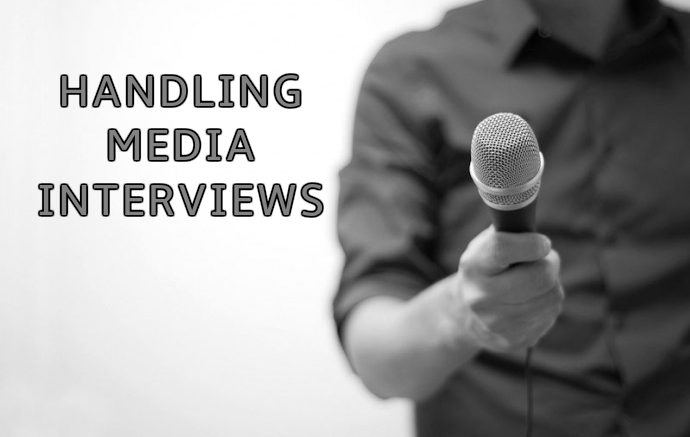Interviews are a norm for any aspiring business leader. It’s an opportunity to establish yourself in the public eye as an industry expert, when media reaches out to you. And, it could be also a good investment if you are adequately prepared.
A good mention in the press is very valuable and credible. Plus it offers you exposure to your different publics – customers, dealers, investors, financial experts, potential partners and others who may not be aware of your existence.
Sometimes, it is seen that many business owners may not get it right and they make simple mistakes. When you’re being interviewed by a journalist or blogger, failing to answer questions may sink both the interview and your chance of some great coverage.
So, prepared to answer all types of questions, without falling into any traps. Think through the possible questions, identify potential danger zones ahead of time, and prepare strategies to work out of and around them. This will make you sufficiently equipped.
Just remember – encash on your chances of becoming a reference point and an industry expert that reporters approach for news or information
Here are some tips to remember, while handling your media interview.
- Ask for the details beforehand
You can ask for details ahead of time. Whatever the reporter needs for the interview must be clear to you. You need to know – what is the information that the publication is seeking? If it’s some practical tips don’t give a lengthy industry analysis. But, if they are interested in having an in-depth discussion about a latest market trend or analysis, for example, make sure you do your research in advance and are fully prepared.
- Understand the dynamics different media
The dynamics are different for each media outlet. If you are being interviewed on radio, it’s important to get to the point fast and you need to get your key points across in seconds. For a print interview, remember that the reporter is recording you or taking notes. Speak slowly and adjust your pace. If the format is TV, remember that physical appearance and gestures are just as important as what you say.
- Research the reporter
The media world is populated by different reporters. Each reporter has his own style: some are calm, and will let you develop your answer. Others are aggressive (and that is the style common now!) will cut you off if you don’t get straight to the point. So, research will make you prepared.
- Consider all interviews as though they are ‘live’
Often interviews for TV and radio will be recorded and won’t be ‘live’. Sometimes they will be handled as live-to-tape. This means that it’s not live but it will be aired as recorded without any editing. Taped interviews that are being used as clips within a broader piece may be edited. But, if you tell yourself it’s live, you won’t give yourself the luxury of making mistakes.
- Be courteous
Be polite to all – including the crew. Don’t forget that it takes more than one reporter to make a story happen. If you are being interviewed for TV, there could be a minimum of six or seven people working to develop your four-minute segment. Be aware of the fact that it’s a team effort.
- You don’t need to have all the answers
Unlike what many feel, really you don’t need to have all the answers. Just remember, you must be prepared to talk about what you know, because you are the master of your business. When a reporter may ask you a question to which you don’t know the answer, rather than saying you don’t know, use ‘bridging’ as a technique to talk about what you do know – eg “that’s a good question but I think it’s also important to emphasize…”
It’s also possible that the reporter may drop a bomb and ask you a question that isn’t knowable. Remember: You are the industry expert, and politely indicate that the particular piece of information isn’t knowable and bridge your way to something related that is knowable.
- Avoid plugging in your product/service
Don’t use the interview as a means for advertising your product or service. A good reporter will give you proper credit. To ensure accuracy of information, make sure to confirm with the reporter how your name, title and company will be credited. Misspellings are common, but they can be carefully avoided!






Leave a comment